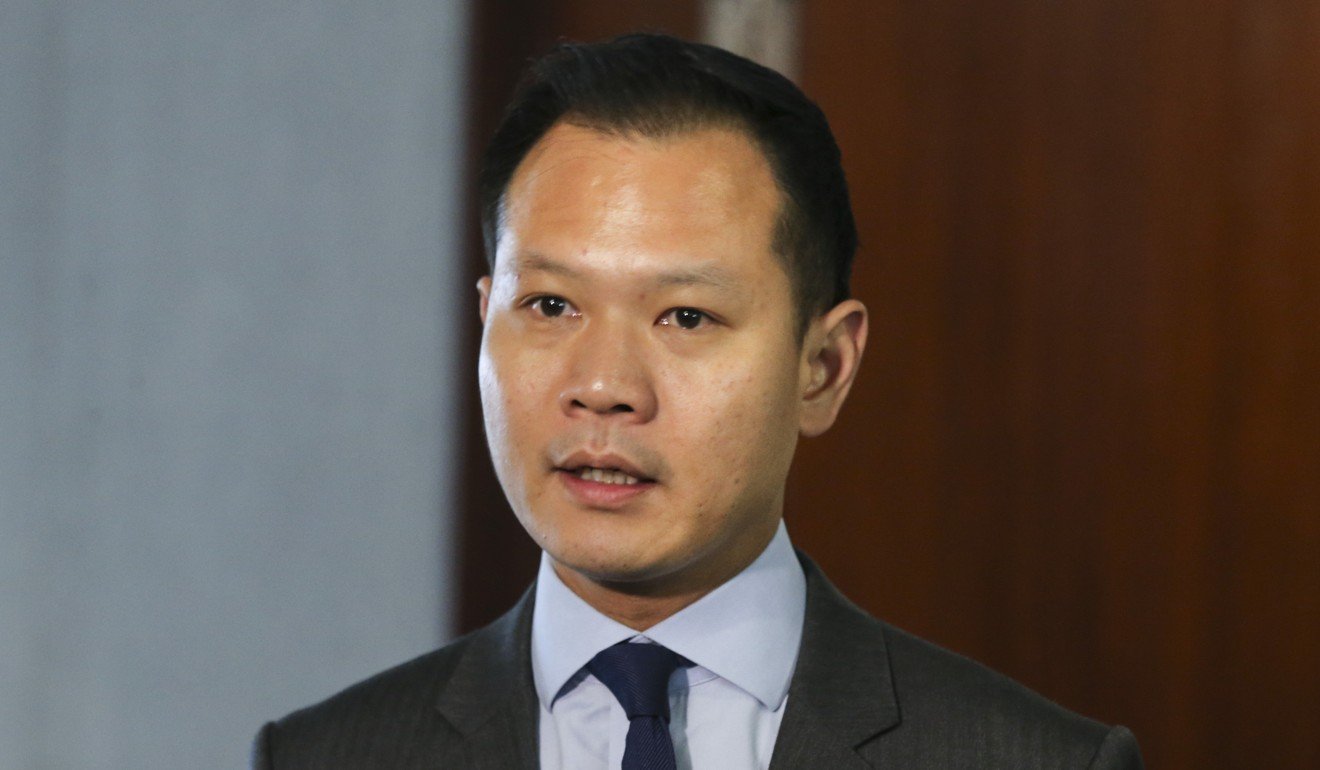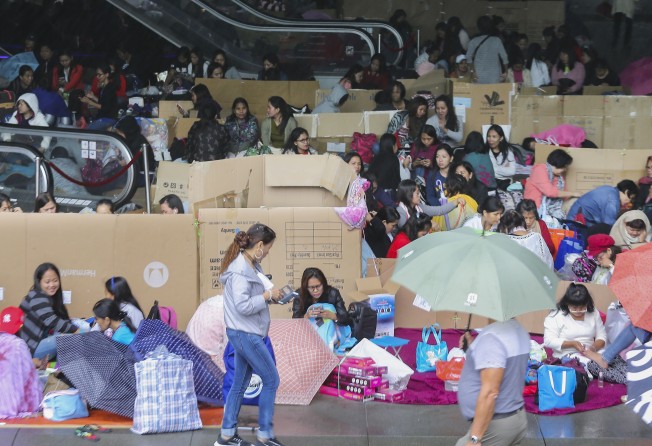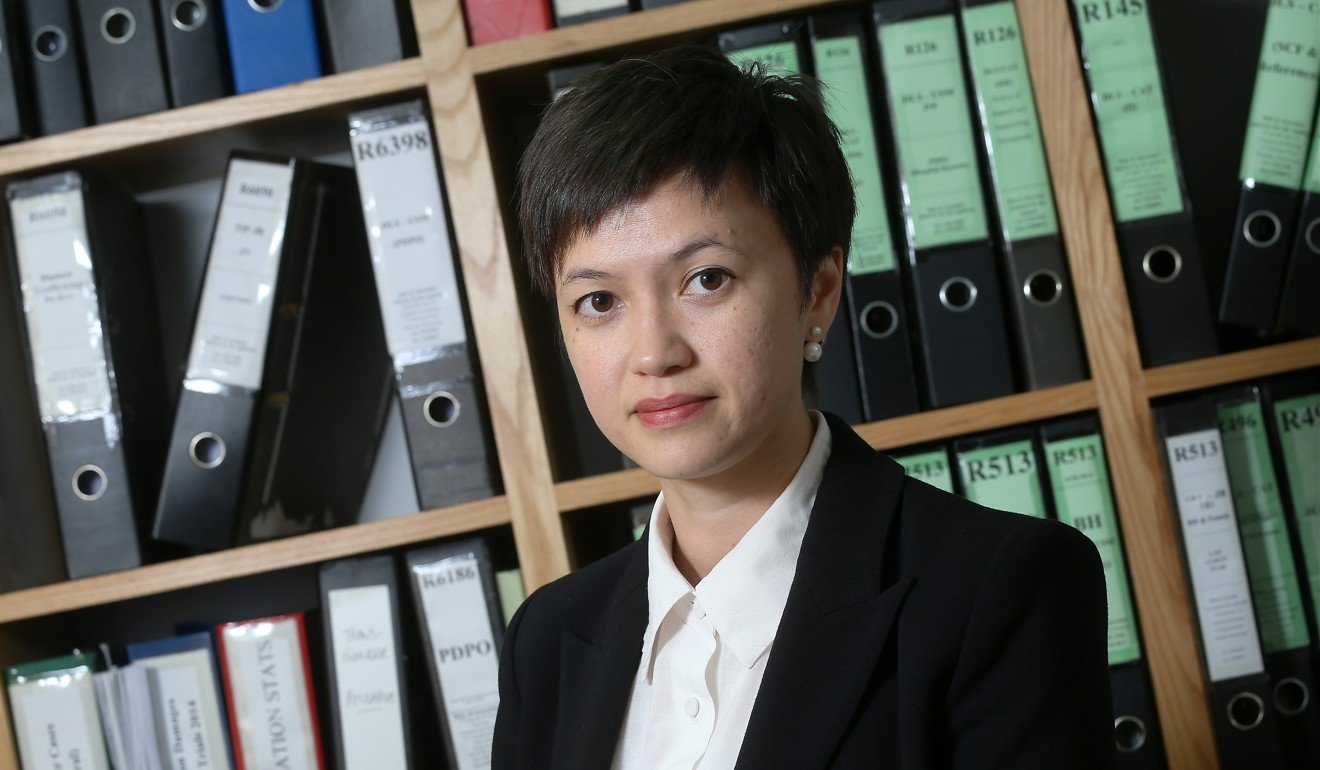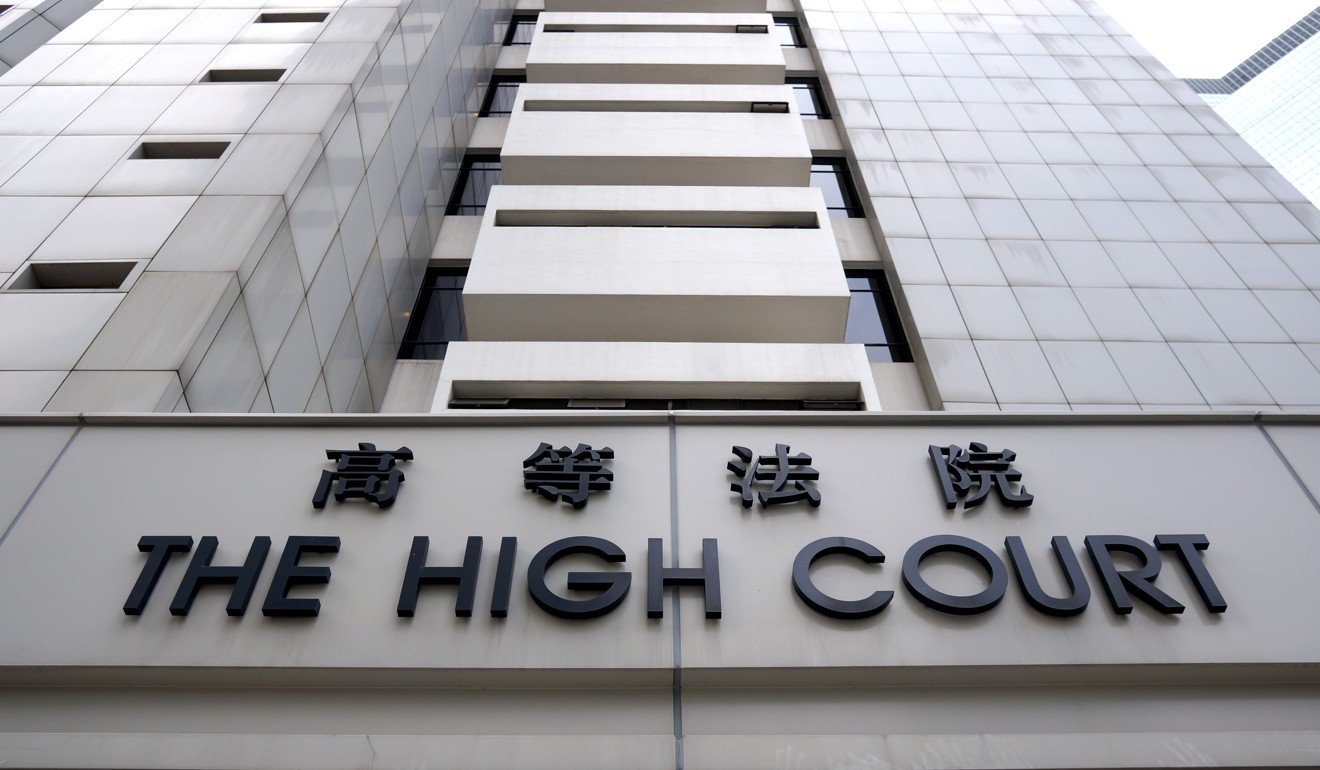
Legislator and lawyers push for bill against human trafficking in Hong Kong
Modern Slavery Bill was drafted by Civic Party lawmaker Dennis Kwok, human rights lawyer Patricia Ho and barrister Azan Marwah

An anti-human-trafficking law for Hong Kong drafted by a legislator, a human rights lawyer and a barrister is expected to be discussed at the city’s panel on security next month. The long-awaited legislation has been repeatedly called for by advocates in a city that has been rattled by cases of human trafficking, mostly involving domestic workers.
“We all need to play a part to tackle human trafficking. It is not just about Hong Kong. It’s about the 28 million victims who are subjected to human trafficking crimes, so I think that Hong Kong should work together with the international community to combat this crime,” said Civic Party lawmaker Dennis Kwok, one of the three who drafted the Modern Slavery Bill.
Forced labour is not a crime in Hong Kong, a city that relies heavily on migrant workers, and local laws provide a narrow definition of human trafficking, including only trafficking for the purpose of prostitution.
There are about 370,000 domestic workers in Hong Kong, most of them from the Philippines and Indonesia, with others from nations such as Thailand, Nepal and Bangladesh. In the coming three decades, the government said, the city would require about 240,000 more domestic helpers.

According to experts and advocates, Hong Kong authorities have failed scores of human trafficking victims in the city.
“Whenever we bring girls or victims to the police, we actually have police officers telling us and complaining to us that they don’t have sufficient investigative powers to deal with the matter,” said leading human rights lawyer Patricia Ho, who drafted the bill along with Kwok and barrister Azan Marwah.
“As much as they might think that something is quite wrong with the case they are presented with, they continue to tell us that they can’t do anything, because no laws are being breached.”
“At the end of the day, that is what it is all about – making the crime of forced labour and human trafficking a real crime. And the bill deals with giving police and other agencies investigative powers, which are critical if we are to be serious about tackling this problem,” the lawyer told the Post.

The drafted law is expected to be discussed on May 4 at the panel on security – a group of lawmakers responsible for monitoring and debating policies – as part of a broader conversation about human trafficking. This is only a preliminary stage, which does not guarantee that the legislation will go ahead.
The government will need to give a formal response to the bill, then eventually draft its own and table it. Once that version is introduced to the Legislative Council, there could be discussions, and three readings are required before it is enacted. The full process might take several months, or even years.
We are not putting it forward as a perfect model at all. At the end of the day, with the way that the legislative process works, it needs to come from the government.
The bill drafted by the trio, which was modelled after the UK’s Modern Slavery Act, seeks to criminalise human trafficking in all its forms and to freeze assets that arise from such crimes.
“We are not putting it forward as a perfect model at all. At the end of the day, with the way that the legislative process works, it needs to come from the government. I think in many ways it’s really about getting the ball rolling,” Ho said.
The bill, which was seen by the Post, addresses issues of forced marriage – whose prohibition is currently scattered across various laws – as well as sex tourism, which also takes place in Hong Kong without being considered a criminal offence.
Another aspect of the bill that could be a game changer deals with transparency in supply chains.
“We have many companies here liaising with different factories around Asia, the very place where you find lots of forced labour issues. If we introduce the requirement to report their supply chain, this could very well have a drastic implication for the whole Asian region,” Ho said.
Such legislation would also protect victims from being prosecuted for offences they were forced to commit.
Although experts have called for such a bill, both Kwok and Ho are prepared for criticism.
“I think people will be initially very sceptical about it. As with most problems in Hong Kong, people will look at it and think: this has nothing to do with us,” Kwok said.
Ho is also expecting some resistance.
“Given that the government denies [human trafficking] is a real problem in Hong Kong, I think we can foresee that the pro-government party members will follow suit with that type of rhetoric,” she said.
Ho described recent declarations from the government as “discouraging signs”. The human rights lawyer was referring to statements by Chief Secretary Matthew Cheung Kin-chung, who said that the issue was neither “widespread nor prevalent” in Hong Kong and that the current legal framework was sufficient.
The government announced last month an action plan to combat human trafficking in the city, putting more personnel and resources on the front line. Advocates welcomed the move but noted that a law was badly needed.
The action plan comes just a few months before the US State Department is expected to release the next Trafficking in Persons Report in June. In 2017, Hong Kong was placed for the second consecutive year on the Tier 2 watch list – just one rank away from the worst offenders. If the city receives the same ranking again, it will be automatically downgraded – although there is a waiver process.

Meanwhile, an appeal that might push the government to take further measures to combat human trafficking is set to be heard in May.
In 2016, human rights lawyer Ho won a judicial review that challenged the work of the Hong Kong government to protect victims of human trafficking and forced labour. In December that year, Judge Kevin Zervos handed down his judgment in the case known as ZN, concluding that the government had “failed to achieve even the most basic objectives” when it came to tackling human trafficking and forced labour. The administration is appealing against the decision.
“They seem to have indicated that they won’t do anything unless they lose the appeal. We have to wait and see what happens with ZN, unless they take a more proactive and sensible approach and legislate of their own accord,” Ho said.
“There’s a lot for the government to reflect upon. Its current tendency is to make a move to protect human rights only when the court forces them. They should take steps on their own initiative.”

The Post exposed several cases of human trafficking over the past year alone. In August, the death of a Filipino domestic worker in Shenzhen was classified by the authorities as a “suspected human trafficking case”. In November, a This Week in Asia investigation showed that several domestic workers from Madagascar had been identified by the International Organisation for Migration as human trafficking victims in the city.
Hong Kong has been described not only as a destination but also as a transit point for human trafficking, with reports about thousands of domestic helpers in the city being trafficked to other countries, such as Russia.
Ho, who has assisted several human trafficking victims, said: “More cases are coming to light, but it’s like we’ve seen only the tip of the iceberg.”
How does Hong Kong compare with other regions?
Hong Kong has been considered to be behind other regions and countries when it comes to combating human trafficking. Neighbouring Macau, for instance, approved an anti-trafficking law about 10 years ago. In mainland China, the government put in place a national action plan from 2013 to 2020.
In Britain, the government passed the Modern Slavery Act in 2015, whereas the United States introduced its first comprehensive federal law on the issue back in 2000, the Trafficking Victims Protection Act.
Beyond lacking a legal framework that covers both sex trafficking and labour trafficking, the measures taken in Hong Kong against such crimes have been a far cry from those implemented by others.
In Houston, Texas, for instance, the Mayor’s Office launched an anti-trafficking campaign that involved police, a taxi company and the hospitality and transport industries.
In Los Angeles, California, government departments have worked with law enforcement and non-profit groups to identify victims and combat trafficking. Experts say that such examples should be followed by Hong Kong.
Cynthia Abdon-Tellez, general manager of the Mission for Migrant Workers, could recall only two meetings over the past 20 years between the local government and service providers that support the victims of these crimes.
“It’s important to work with those on the front line. And unless we have a law and a task force that has a smooth communication with us, it’s hard to tackle the problem and stop criminalising and retraumatising the victims,” she said.